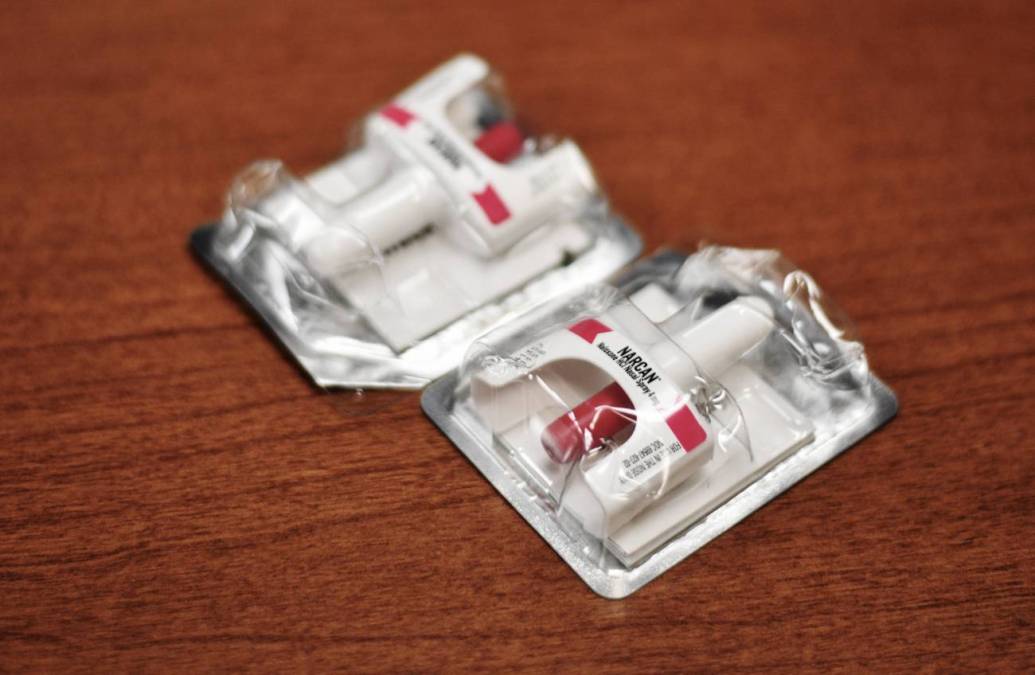Texas launches interactive map to help residents find overdose medication sites

The Texas Department of State Health Services launched an online interactive map this week that pinpoints where residents can acquire Naloxone, a medicine that rapidly reverses opioid overdoses, as part of the state’s “One Pill Kills” campaign to prevent fentanyl overdoses and other poisonings.
The new map, which is maintained by the department’s Texas Overdose Data to Action program, or TODA, includes a search bar where visitors can enter an address or ZIP code to find Naloxone dispersal locations. Information displayed for each location includes the type of site — such as community health clinics, recovery support services or vending machines — and their hours, phone numbers and websites.
According to the National Institute of Drug Abuse, when Naloxone is administered, it attaches to opioid receptors in the brain and blocks the effects of opioids, allowing users’ breathing to be restored.
Jordan Baker, a TODA program manager, worked with the Texas Health and Human Services Commission and an initiative led by the University of Texas Health San Antonio called Naloxone Texas to create the map. He said an analysis revealed access to Naloxone was a primary issue across the state.
“We did interviews with local harm-reduction organizations and prevention agencies, a lot of universities and really just subject matter experts and community members and those lived experiences to identify regional challenges,” Baker said. “But across the board, we heard that access and awareness of where the Naloxone was a big issue.”
In September 2023, TODA received $3.9 million from the Centers for Disease Control and Prevention, which provides grant funding to 90 health departments across the country to reduce drug overdoses and the impact of related harms, using data surveillance on drug poisonings. The grant program runs through 2028, with required reapplication each year for continued funding.
TODA recently submitted its application for fiscal years 2025 and 2026, a DSHS spokesperson told StateScoop.
Baker said the tool also highlights resource deserts — areas where residents have limited access to essential resources such as food, health care, green spaces or other necessities, often due to factors like historical disinvestment or systemic inequalities — in West Texas, where there are few Naloxone distribution sites.
“It’s definitely something that, as a result of the map, has been brought to TODA’s attention, and we’re working with Naloxone Texas to try to get some more resources in that area,” Baker said. “We’re also working with some of the community paramedicine teams about how we can bring stronger prevention support to the more rural and large land masses.”
A 2024 report from Texas DSHS showed a nearly 20% decrease in fentanyl-related poisoning deaths, with at least 430 fewer Texans dying from fentanyl-related poisoning compared with the previous year. The decrease comes after five straight years of increases, which saw fentanyl-related poisoning deaths in Texas rise by more than 600% from 2019 to 2023.
Baker said TODA collects data on fatal and non-fatal drug poisonings from hospitals, emergency medical services, toxicology reports and death investigation reports, to better understand drug poisonings.
She said the program plans to create a non-fatal drug poisoning data dashboard in the next few months that will display overdose trends by drug type, age group and other demographic information.
“All of our partners want data,” Baker said. “Our purpose is to utilize that data to inform their local prevention strategies, and then kind of roll all that up to our overall state strategy of supporting the reduction of drug poisonings.”





